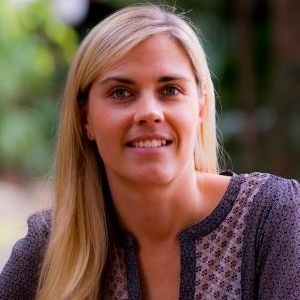Associate Professor Kerrylee Rogers1
1School of Earth, Atmospheric and Life Sciences, University of Wollongong
Abstract:
The urgent need to mitigate climate change has focussed attention on the extraordinary capacity of coastal and marine ecosystems to sequester and store carbon within living biomass and substrates. Known as blue carbon ecosystems due to their connection with oceans, mangrove and saltmarsh are reported to have amongst the highest carbon stock density and rates of carbon sequestration of all ecosystems. Soil carbon storage is related to vegetative capacity to add organic matter to substrates, and physical processes that enhance to organic matter preservation and/or limit organic matter decomposition; periodic inundation by saline tidal water is crucial for both vegetative additions, and processes favouring preservation over decomposition. Global scale analyses have variably highlighted the role of temperature and precipitation on blue carbon storage, but surprisingly have ignored the critical role of sea level in influencing tidal inundation. The influence of global variation in relative sea level over the past few millennia on soil organic matter and carbon storage within substrates of blue carbon ecosystems is demonstrated. Using a unique study site exposed to rapid relative sea-level rise, the relationship between carbon sequestration and sea-level rise is validated over shorter time scales, confirming the capacity for coastal wetlands to adjust to sea-level rise by storing soil organic matter. Unlike terrestrial ecosystems blue carbon ecosystems do not become carbon saturated and can continue to store organic matter providing vertical and lateral space is provided by sea-level rise. The space available for carbon storage within mangrove and saltmarsh has become increasingly limited for many coastal wetlands where sea level has been stable for the past few millennia, particularly in the southern hemisphere. This paper confirms that sea-level rise will enhance carbon sequestration providing sediment supply to coastal wetlands is sufficient and space for lateral expansion does not become limited by coastal squeeze.
Biography:
Associate Professor Kerrylee Rogers is a coastal ecogeomorphologist and recent ARC Future Fellow in the School of Earth, Atmospheric and Life Sciences at the University of Wollongong (UOW). Between 2005, when she graduated with PhD from UOW, and 2012 she was appointed as an environmental scientist with the New South Wales Government, before returning as a research associate at UOW in 2012. Her research has largely focused on the response of coastal ecosystems and landscapes to climate change. Particular attention is placed on the role of sea level in shaping coastal ecosystems, with substrate organic matter addition being a critical process that provides dual benefits of facilitating adaptation to sea-level rise, and contributing towards carbon storage and climate change mitigation. She is an active researcher, regarded as a national and emerging global leader in coastal ecosystem research, which is exemplified by her recent work published in Nature demonstrating that coastal wetland carbon storage is related to millennial scale variation in sea level, and that carbon storage may be enhanced should sea-level rise accelerate as projected. In addition to her research, Kerrylee Rogers is a lead co-ordinator for an Asia-Pacific Regional Cooperation Agreement (RCA) project with the International Atomic Energy Agency focussed on building country capacity in the application of radiometric and isotopic techniques for assessing the vulnerability of coasts to sea-level rise. Kerrylee Rogers also co-ordinates the Bachelor of Environmental Science (Honours) degree, teaches geomorphology and project management in environmental science, and shares her passion for coastal sustainability with her husband and two sons.
